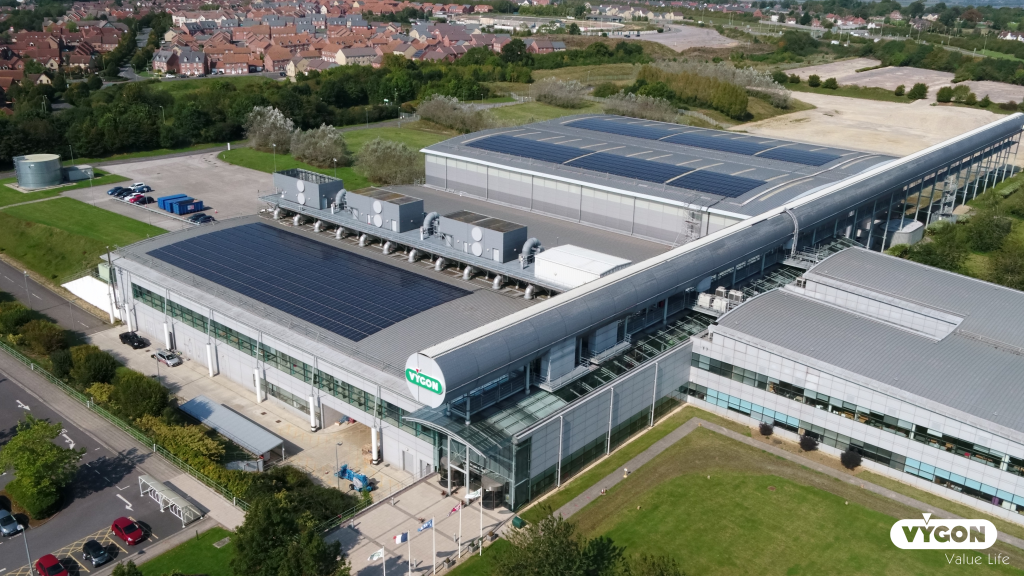As energy prices continue to rise and sustainability becomes a key focus, businesses are turning to renewable solutions like solar energy to meet their financial and environmental goals.
In recent years, the push toward Environmental, Social, and Governance (ESG) compliance has accelerated, and for good reason. Rising energy costs, alongside increasing regulatory and stakeholder pressures, make it essential for businesses to adopt sustainable practices. As companies begin to prioritise both their bottom line and environmental impact, solar energy is becoming a popular and effective solution.
Here’s how businesses can address the challenges and achieve their sustainability goals with solar power.
Understanding the Challenges
For many companies, the prospect of adopting solar energy presents both significant advantages and real-world challenges. High electricity costs, coupled with the volatility of energy markets, can place considerable financial strain on businesses. This is especially relevant for larger organisations with complex energy requirements, where electricity bills are a substantial part of their operational budget.
Additionally, the pressure to meet ESG criteria is intensifying. Regulators, clients, and stakeholders increasingly expect businesses to act on their sustainability commitments. By adopting renewable energy sources like solar photovoltaic (PV) systems, companies can proactively meet these standards, reducing both energy costs and carbon emissions in one strategic move.
Choosing the Right Partner
Craig Jones from Energy Gain UK shares insights on how businesses can succeed with solar PV systems by selecting the right partner for their unique needs. He explains, “Choosing the right partner to install a solar PV system is crucial. Businesses need a provider that understands their specific energy requirements and can offer a solution that aligns with their sustainability goals.”
One of Energy Gain’s clients, Vygon UK, a major supplier to the NHS, faced exactly these issues. With rising energy costs and increased pressure to adopt sustainable practices, Vygon UK set a target to reach Net-Zero emissions by 2045.
As Neil Surman, Procurement Manager at Vygon UK, put it, “We were facing rising electricity costs and increasing pressure to adopt sustainable practices. The NHS also set a goal for its suppliers to achieve Net-Zero by 2045, and we wanted to proactively meet those targets.”
The choice of a knowledgeable and experienced partner helped Vygon UK overcome these challenges and set a clear path toward its energy and sustainability goals.

Building the Business Case
Implementing a solar PV system is not just about installing panels, it’s about building a business case that makes financial sense. This involves detailed data analysis and financial modelling, including projections of energy savings, payback periods, and carbon reduction.
By analysing expected returns and potential energy savings, businesses can present a compelling case for solar investment. For Vygon UK, this approach allowed them to see that, by generating over 50% of their electricity on site, they could achieve significant savings while reducing their emissions by nearly 50% over three years.
Financial Savings and Carbon Reduction
The financial benefits of solar often materialise sooner than many businesses expect. By generating electricity on-site, companies reduce their dependence on external energy providers, which not only cuts costs but also shields them from market volatility. The environmental benefits are equally compelling; solar PV systems allow businesses to reduce carbon emissions, helping them make meaningful progress toward sustainability goals.
With energy prices continuing to rise, solar investments provide a strategic means of locking in long term savings and insulating the company from market fluctuations. Vygon UK’s success demonstrates how businesses can effectively reduce their electricity costs and environmental footprint while strengthening their market position.
Beyond Energy Savings: Investing in ESG Leadership
Investing in solar energy isn’t just about saving on electricity bills, it’s an investment in a company’s commitment to sustainability and leadership within its industry. For businesses aiming to enhance their ESG credentials and reduce operational costs, solar energy provides a proven pathway to success. By selecting an experienced partner and thoroughly assessing both the financial and environmental benefits, businesses can seamlessly integrate solar power into their operations.
If your business is considering the shift to solar, a knowledgeable provider like Energy Gain UK can offer the guidance and expertise necessary for a successful transition. Embracing renewable energy isn’t just about enhancing energy efficiency; it’s about positioning your business as a sustainability leader in a rapidly changing market.


